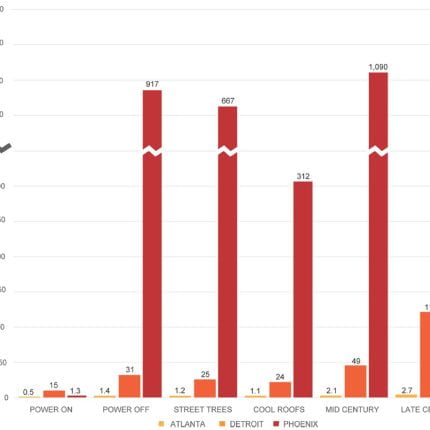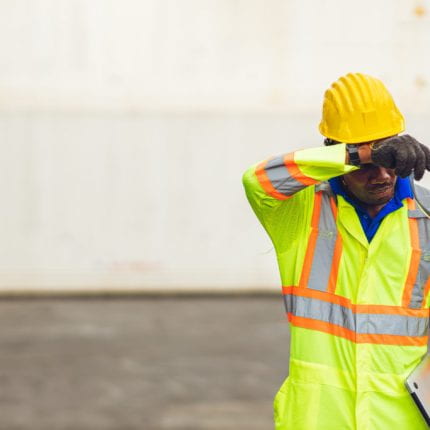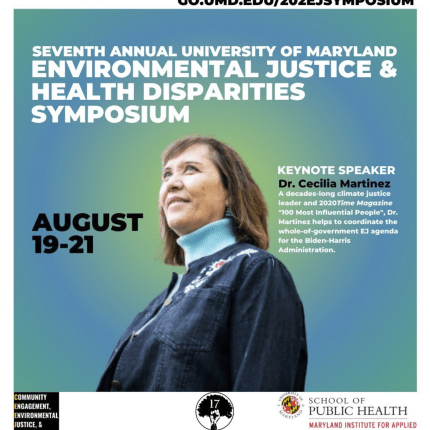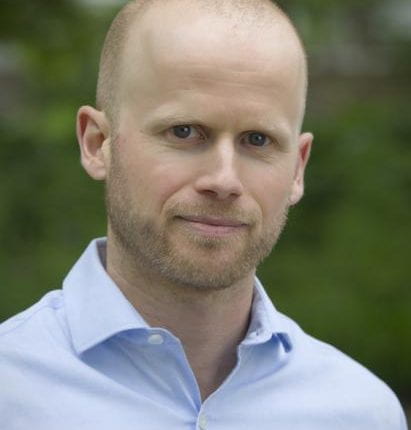CBC News Network’s Hillary Johnstone speaks with climate impact expert Scott Krayenhoff

Listen to the interview: https://www.cbc.ca/player/play/video/9.6865172


Listen to the interview: https://www.cbc.ca/player/play/video/9.6865172

Prof. Krayenhoff has been awarded the Outstanding Early Career Award…
Read more about "Prof. Krayenhoff receives American Meteorological Society Early Career Award"

In the wake of the publication of a major new study on urban heat adaptation from the Urban Climate Adaptation Lab and published in the Proceedings of the National Academy of Sciences of the USA, Prof. Krayenhoff speaks with Alex Smith, host of Radio Ecoshock.
Read more about "Interview on Radio Ecoshock about cooling cities"

Prof. Krayenhoff has been awarded an Early Researcher Award from…
Read more about "Prof. Krayenhoff receives the Ontario Early Researcher Award"

Heat is already the leading contributor to weather-related deaths in the United States. And the increase in extreme heat events puts an extra strain on the country’s power grids, sometimes resulting in blackouts. This can be a deadly combination, depending on where you live.
Read more about "Prof. Krayenhoff speaks with The Weather Network about blackouts during heat waves"

WASHINGTON — Global warming and urbanization are expected to increase heat hazards in cities around the world, but higher temperatures may not always lead to higher health risks, according to a new study in Earth’s Future, AGU’s journal for interdisciplinary research on the past, present and future of our planet and its inhabitants.

In 2021, extreme heat events have had dire health consequences in unlikely locations. West Coast cities like Portland and Seattle saw record-breaking temperatures early in the summer, with little respite for the elderly, unhoused, and other vulnerable populations. Studies have shown that in nearly every major city in the U.S., BIPOC communities are exposed to more extreme urban heat than White people. Expanses of concrete and reduced canopy cover lead to concentrated heat in urban centers, producing what is known as the “urban heat island effect.” Because of this phenomenon, cities can vary wildly in temperature on a block by block basis, with the burden of extreme heat falling upon low wealth communities and communities of color. In this session, panelists will discuss the unequal burden of urban heat for communities with environmental justice issues including the lack of salutogenic and climate resilient infrastructure and what actions can be taken to alleviate this burden. What adaptation strategies have been used to great effect within urban heat islands, and how have historical policies contributed to the health effects that are seen within American cities today.

The second Urban Climate webinar was held on Dec 2020 and hosted 2020 Timothy Oke Award winners, Dr Chao Ren and Dr Scott Krayenhoff, discussing measurements and modeling efforts focused on extreme urban heat assessments.

In this first year of the IAUC Timothy Oke Award for Original Research in the Field of Urban Climatology, the International Association for Urban Climate is delighted to announce that two awards will be made, to Dr Scott Krayenhoff, Assistant Professor of Atmospheric Science at the University of Guelph, and Dr Chao Ren, Associate Professor in the Faculty of Architecture at the University of Hong Kong. These two highly deserving early-to mid-career researchers both have outstanding publication records which demonstrate the quality, relevance and value of their research contributions.
Read more about "Prof. Krayenhoff receives 2020 Timothy Oke Award for Original Research"

If you think this summer has been hotter than usual, it's not just in your head. David Phillips, a senior climatologist with Environment and Climate Change Canada, estimates that Eastern Canada has had three times as many days reaching 30 C and hotter this year compared to the average summer. These rising temperatures may leave most of us sweating, but for others, especially those in poorer neighbourhoods, it can pose a danger to their health and even their lives.
Read more about "As the planet gets warmer, are Canadian cities ready to face the heat?"